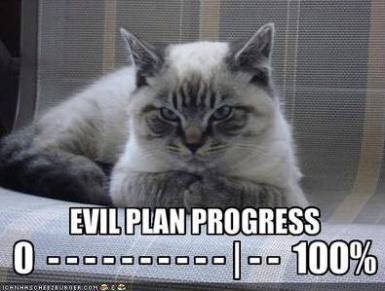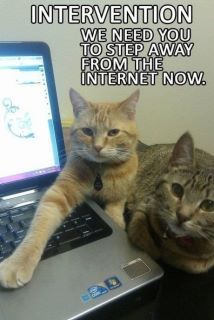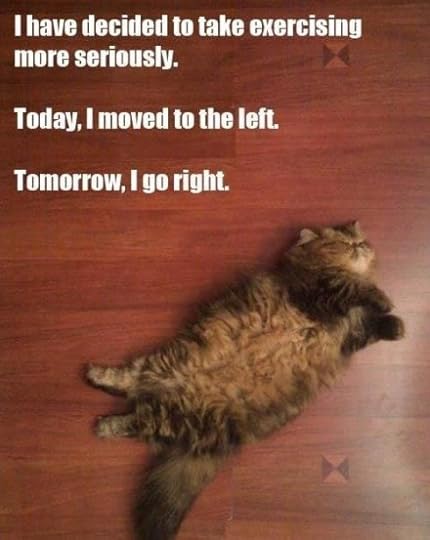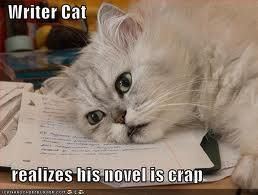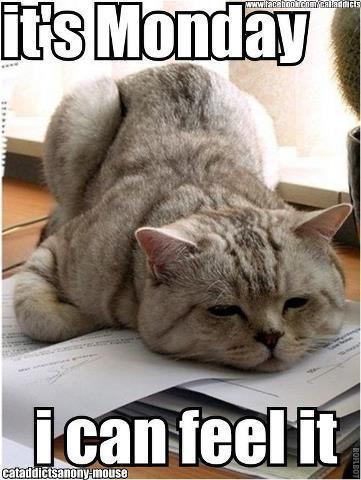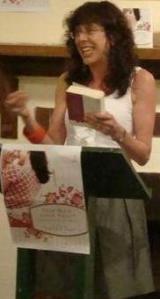Valerie Parv's Blog, page 12
April 16, 2013
How a writer’s agent is your good/evil twin
Today I read a blog about why authors need agents by Australian writer, Alison Booth. She describes what her agent has done for her, and how “lucky” she was that she was taken on.
I agree with all her points except, possibly, the luck part. Yes, you do need to be in the right place at the right time, even to submit the right book. But the search, the craft, the years of preparation that made Alison ready for an agent owes far more to talent and hard work than to luck. Read Alison’s blog http://writingnovelsinaustralia.com/2013/04/16/why-have-a-literary-agent-by-alison-booth/
I’ve worked with my agent, Linda Tate of The Tate Gallery in Sydney, for 20 years. I’ll write more about that closer to our anniversary in October. Now, I’d like to echo Alison’s blog and share some of what Linda and I do together. Note, I’m not saying “does for me” because the agent-author relationship is a team effort. The agent can only market what the writer writes. They can also only promote a writer who knows where they want their career to go.
Otherwise it’s like jumping into a taxi and asking the driver to take you somewhere, without telling them where. You end up paying for a ride that delivers you to the wrong destination.
The most crucial role Linda plays for me is as my good/evil twin.
As twins go, we’re the Danny De Vito/Arnold Schwartzenegger variety, not in the least alike, and this is good. Linda’s way feistier than me, going where I fear to tread. She’ll telephone anyone anywhere in the service of my work. Her entertainment industry background means she sees no point in waiting endlessly to hear from a publisher. She calls them.
As my evil twin, she ensures I get paid. This is a topic for another blog, but my hobby horse is that ALL writers should be paid for professional activities, whether speaking at conferences, libraries or workshops, or selling their work. I might be reluctant to ask for a fee increase or to chase up money I’m owed, but Linda never is.
As my good twin, she analyses contracts and royalty statements. I read them, too, since I’m the one signing on the dotted line or the echo-sign these days, but she looks at contracts differently. Hands up any author who does NOT go first to the bottom line to see how much they’ve made? Linda looks at what markets a book has gone into, which are still to be exploited, and any patterns arising out of the paperwork, discussing them with me in depth. New contracts bring out her good and evil side. Good twin wants the book sold, evil goes after the best deal.
Good twin vets all promotional material. Does this biography or photo support my “brand”. How am I being presented online? In the media? At conferences? The regular status reports she prepares include updated bios in varying lengths for us to tweak. I still remember when we switched my linear (she was born…she started writing…) bio. for a shorter, web-styled look. Today we consider how my photos and book covers look as thumbnails on mobile devices. An agent can and should keep you current.
Evil twin keeps me writing. You’d think this would be good twin’s job, but she’s too nice. Sometimes a writer needs a spur to creativity, keeping you going when it’s easier to give up. Good twin is the one reading the work when it’s done, patting me on the back while evil twin keeps track of timelines and body counts. Even romance writers kill people off sometimes.
Good twin or evil twin, I wouldn’t be without either of her. What about you? How do you see the author-agent relationship?
Valerie
on Twitter @ValerieParv
and Facebook
Read some reviews of Valerie’s latest book, Birthright at http://www.valerieparv.com/birthright.html


March 28, 2013
First Monday Mentoring for writers – April 1st, no fooling
It’s that time again, the first Monday of the month when I open this blog to questions on anything to do with writing, the writing life and getting published in general. Feel free to ask me anything using the comments option below.
Seeing that the first Monday of April falls on April Fool’s Day, I started to think of how writers fool ourselves about our writing and our careers. Do any of these sound familiar:
I don’t need to write anything down.
I’ll remember the idea in the morning.
I can hear some of you screaming, “Nooooooooo!” from here. The brainwaves we produce right before we fall asleep are perfect for generating new ideas. Unfortunately, they’re also totally unsuited to storing short-term memories. See the pattern? We’ll have some of our best ideas, but there’s almost no chance we’ll remember them for very long. Keep a pad or recording device on your bedside to capture your inspiration.
I’ll just go online for a few minutes, then start writing.
If you believe this, there’s a really nice bridge across Sydney Harbour I can sell you. Write first, then go play online. Even if you swear by your sainted mother that it’s for research, write first. Leave gaps for stuff you need to look up, and fill them in later. But write first.
I’ll write as soon as I’m inspired
Real writers don’t write when they’re inspired; they get inspired by the act of writing. If you’re not sure what you want to write about, start anyway. Write about not writing. Write about your characters or the ones that you would write about if you had an idea. When you let yourself write rubbish, magic happens. Gradually you start writing non-rubbish, and soon you’re away.
Playing one game of Solitaire
will warm me up to write
That bridge is still for sale. I found it’s perfectly possible to play Solitaire until two in the morning until I zapped every version of the game off all my computers. Just as there’s no such thing as eating “one Pringle” there is no such thing as “one game of Solitaire” (or Bejewelled, or Words with Friends, or whatever is the current time suck)
Writing gets you warmed up for writing.
What’s your personal April Fool’s problem? How do you deal with it?
Valerie
on Twitter @ValerieParv and Facebook
Read some reviews of Valerie’s latest book, Birthright at http://www.valerieparv.com/birthright.html


March 17, 2013
Are you growing as a writer?
If you compare what you’re writing now with some of your earlier work, you should be able to see how far you’ve come. Certainly most writers will have made progress in areas of craft – such as being able to put words together more skilfully, and share story background with less “telling” and more “showing.”
You’ve probably also learned how to motivate your characters so they come across as real human beings with desires and goals we, as readers, can relate to.
But there are other kinds of growing writers can, and should, be doing.
Are you keeping up with trends?
This doesn’t mean slavishly imitating the current best-seller, whether it’s 50 shades of gratuitousness or the latest da vinci whatever. It means being aware of developments in the writing world. We know readers are increasingly reading our books on devices from ereaders to smart phones.
Have you seen how your chapters look on an iPhone? For more on this, check out “What’s Going on with Readers Today?” at http://toc.oreilly.com/2013/02/whats-going-on-with-readers-today.html
Some writers gloat about not understanding the electronic world and social media. Sure, it’s time consuming, occasionally time wasting, but that’s up to the user. When politicians are taking to social media in droves, you can be sure it’s because that’s where the voters are. Do you know where your readers are? Keeping up with them on social media makes perfect sense.
If you’ve been writing for some time, are you breaking new ground with your current work?
Settling into a writing rut not only risks losing readers, it also bores the writer. Next time you write a scene that’s similar to what you’ve done before, challenge yourself to write it in a completely fresh way.
If you usually write novels, try a novella or a short story. Perhaps even some poetry. If you write in one genre, try reading in a few others to see if your voice would fit in any of them. Recently I ventured into digital-first publishing with my book, Birthright, a long novel that crossed over between romance and science fiction. No guarantees of success, but it’s a lot of fun and taking me in directions I’d almost forgotten I loved.
You can do this too. Try mixing up your romance with a dash of paranormal. Or your romantic suspense with a shot of inspirational. These days there are no limits to what a writer can try, and who knows, your little experiment may just catapult you into best-sellerdom. As a writer, what are you doing to keep your work fresh? Share your comments here.
Valerie
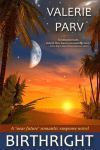
on Twitter @ValerieParv and Facebook
Read some reviews already up at http://www.valerieparv.com/birthright.html


March 3, 2013
First Monday Mentoring – 5 editing tips to strengthen your writing
It’s that time again, the first Monday of the month when I answer your writing questions here. Suggestions from other writers are welcome too, so we can share experiences and solutions. This week I’m on tour for Writing Australia, visiting the writers’ centres in Canberra, Melbourne and Adelaide with my Power Editing Masterclass, making this a good time to consider how editing can strengthen your work.
With so many writers publishing their own work online, we need editors more than ever. The most common complaint I hear about indie published books is the number of mistakes readers spot, often in the first few paragraphs. This not only turns readers off that book, but very likely anything else the writer has out there.
Every writer, however well established, is too close to the work to be objective about it. We can’t help seeing what we expect to see, reading things like motivation into the writing when it’s still in our heads. Everything your reader needs to understand your characters and their story must be written in to the manuscript. Which brings me to the first, most crucial editing tip:
1. Step away from the book.
Put the work aside for as long as possible, days or weeks if you can manage it, to restore your objectivity. Missing motivation, repetition, inconsistensies will all jump out at you when you come back to your book with a fresh eye.
2. Say what you mean
In workshops, I’ve had writers bring along a preamble they want to share before reading their work. Your readers won’t have this luxury. Whatever they need to know must be in the book. An editor can soon tell you what’s missing.
3. Find yourself an editor
If you’re accepted by an established publisher, they will appoint an editor who’ll look at content and structure. Your work will also be copy and line edited to suit the publisher’s style. If you indie publish or are polishing work to submit, you can hire a qualified editor. Start by giving them a sample and obtaining a quote to do more, to be sure you’re on the same wavelength. Find freelance editors via the Australian Publishers’ Association website or the Institute of Professional Editors.
4. Know what to change…and what not to
Theodore Sturgeon called it “matter vs manner”. Matter is your message, what you want to say with the work. No one should try to change your message, be it ‘love conquers all’ or ‘life’s a bitch and then you die’ or whatever. A good editor will look at “manner” (how you say it) to be sure the reader gets your message as clearly as possible. As an editor told me, “If I’ve missed something, millions of readers will, too.” If your message isn’t clear to your editor, make the changes, no arguments.
5. Read like a reader
This is hard to do and requires all the previous steps. Will the reader understand why your characters act as they do? Will they spot “who dun it?” chapters before they should? An editor can tell you whether you’ve given the reader enough information to understand your story.
Don’t be like the hall of learning which recently produced several thousand student book bags emblazoned with the name, “Missouri Univeristy.”
Do you have questions about editing? Or experiences you’d like to share? Post your comment or question here.
Valerie

on Twitter @ValerieParv and Facebook
Read some reviews already up at http://www.valerieparv.com/birthright.html


February 8, 2013
Birthright book review contest…and the winner is…
Congratulations to MARIA PERRY MOHAN
My agent, Linda Tate, chose Maria’s review as the winner in her book review contest. Maria receives a $50 Amazon gift card with compliments of Corvallis Press, Publishers of Birthright. Maria’s personal touches while commenting on the book made her review a standout. Maria blogs at ishmarind.blogspot.com.au and is on Twitter @gaelikaa
You can read about what makes a good book review here http://valerieparv.wordpress.com/2012/12/20/tips-for-writing-a-good-book-review-and-a-contest/ 
Now over to Maria for her winning review:
So there I was, about to embark on the assignment of reading a science fiction novel for perhaps the first time in my adult life and I’m thinking “Valerie Parv?” Oh, yes! Successful Australian author of romances for Silhouette and Harlequin, not to mention a particularly fine writing craft book! A combination of sci fi and romance, as I live and breathe. I wondered about the future implications for readers. Is Harlequin about to embark on an as yet classified but admittedly thrilling mission? Are they boldly going to go where no romance publishing company has gone before and give us a new category in romance, sci fi, at two titles a month? Or maybe four? What will it be? Passion among the planets? Get amorous among the asteroids? Sex in a spaceship?
Perish the thought, earthlings, it was nothing like that. I thought I was going to get a romance novel with a backdrop of Star Trek. What I got was a serious piece of contemporary literature. Contemporary as in written today but futuristic in the sense that it’s science fiction. Serious but readable. Scientific but accessible, even if you are almost innocent of all things scientific as I am. A story of one man’s search for his true self. And does he find himself? Yes he does. And when he finds his true self, he finds his mission. Adam Desai (I initially thought he’d be of Indian origin, the real Desais are from Gujarat, not Carramer) is not your regular alpha hero, ready to sweep you off your feet and give you great orgasms! But he’s an enigmatic individual who will intrigue you and have you rooting for him. Yes, Adam’s love story takes place in the course of the story too, but it’s as enigmatic and beautiful as he is. There’s Shana, a talented administrator, the acting governor of Carramer, an indigenous woman in a formerly colonial nation, proud of her origins, beautiful and Adam’s soul mate. There’s his working colleague and ex-lover, who walked away from their relationship with great sadness when she realized that Adam was never going to buy into the dream of a semi-detached home with a white picket fence and 2.2 children. Yet she still loves him and is ready to support him professionally. I loved the fact that he loved her, even if he wasn’t ‘in love’ with her. I also loved the fact that bitterness was absent on the ex lover’s side.
There’s a host of intriguing and unforgettable characters in this sci fi thriller.
Burton Hackett, the villain is an evil yet strangely fascinating character. There are the half aliens, Garrett and Elaine, who always knew they were different but who have been supporting each other all through, having all the human characteristics but with highly developed psychic abilities. What this duo need is to convince Adam to come to terms with the fact that he is not of unknown parentage but of alien origin and to combine forces with them on a mission to save their adopted planet from certain disaster. I was holding my breath until practically the final scene.
I am in awe of Valerie Parv’s talent as an author, of her versatility and creativity. An author who has what it takes to satisfy a reader of category romance and at the same time who can come up with a novel as hard hitting as ‘Birthright’ is a formidable talent indeed. The author voice was so strong, it was neither male nor female. It was a human voice, a compassionate voice. It did not scream ‘contemporary romance author’. It spoke with quiet reason of the dilemma which affects every human being sooner or later – who are we, where have we come from, where are we going.
Set in the fictional south Pacific nation of Carramer, a country created by the author as the setting for many of her novels, I found everything about this novel fascinating.
This is a novel which can please readers of a very different calibre than the ones who read category romance. Not that category romance readers aren’t a discerning group. But they are readers of a particular sex and age group. ‘Birthright’ is a novel which can please a wider spectrum of readers than those for which Valerie Parv has usually written. As it is an impacting science fiction thriller, I expect male readers would certainly enjoy reading this.
There you have it. Congratulations again, Maria. What do other readers think about reviews? What’s your best or worst experience of a book review. Add your comments below.
Valerie

on Twitter @ValerieParv and Facebook
Read some reviews already up at http://www.valerieparv.com/birthright.html


February 3, 2013
First Monday Mentoring for February – what comes first?
If you’ve been here before, you’ll know that on first Monday of each month, I answer your questions on writing. February already. Wasn’t it Christmas just days ago? Only last weekend I was in the beautiful city of Bathurst, helping the community celebrate as their Australia Day Ambassador. I count this a real honour and always have a great time meeting new people, especially helping to welcome some brand new Australian citizens.
Meeting local writers is always special. Giving a talk at the Bathurst Library, I met (or remet) several from past writing conferences, as well as the present owners of Abercrombie House, one of the finest colonial houses in Australia. Lots of story material in that weekend.
Which leads me to a question to kick off First Monday Mentoring for February. Where do I start my stories – with plot or characters, and which is best.
Whatever works for the writer is the best way. I like to start with an interesting person, perhaps an unusual occupation that sparks a “what if?” question. Can be either hero or heroine, but usually I imagine my heroine first. What does her job involve? What’s her family like? How did she get started, and where does she work? Self employed or for a business? Then the big question – what problem is she facing when we meet her? If the book is a romance, what role does the prospective hero play in her problem? Ideally, he’ll be the cause of it or have a key role.
In my SF romantic suspense, Birthright, the first character we meet is Adam Desai, who was also the first character I imagined when I started the book. Having been found in a shipwreck, he knew nothing about his past. His perfect match therefore had to be someone very secure in her heritage. Enter Shana Akers.
Interviewing a character is a good way to get to know them. At first it feels strange asking questions and writing down the answers, but if you stick with it, they soon start expressing their own opinions faster than you can write. It’s not spooky, only you accessing the parts of yourself the character represents.
Do you start with character or plot? What tips and tricks have you used that you can share here? If you have other questions to do with writing, feel free to ask them here as well.
Valerie
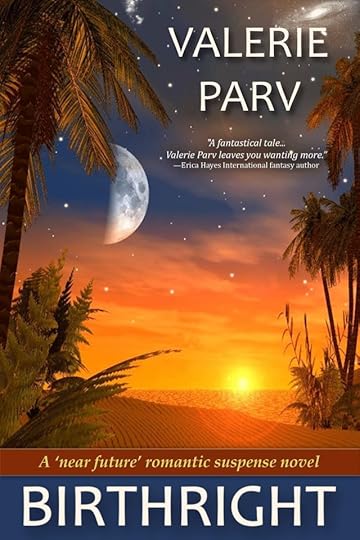
on Twitter @ValerieParv and Facebook
Read some reviews of Birthright at http://www.valerieparv.com/birthright.html


January 22, 2013
A writer? No, an Australian writer
Sometime between the stone age and the getting-stoned age of the 60s, my family got off the ship, Fairstar, legs wobbly after six weeks sailing from England, and took a look at our new country. I was with my parents, Arthur and Elizabeth Newsum, older sister Maureen and baby sister, Leigh in very English coats with velvet collars and Mary Jane shoes we’d soon swap for shorts t-shirts and thongs. Well maybe not thongs. I suspect English toes separate in the wrong places for thongs.
Our parents had about ten pounds ($20 today) to their name. No home. No jobs. I was grown up before I understood how terrifying that must have been. Three kids and no idea what the future held.
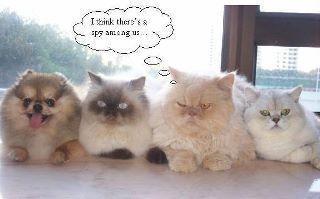
When you’re new, it can take a while to fit in.
In England Dad had sold insurance door to door. He tried that here but the doors were simply too far apart. He trained with Fosseys as a store manager, his work taking us to alien places called Grenfell and Orange where the spiders were bigger than we were.
If you’d told me that years later I’d return to Grenfell as their Australia Day Ambassador, having sold 29 million of my books worldwide, or that Maureen would have an OAM for her work with kids who have cancer, I’d have told you to pull the other one. But in Australia anything’s possible. Migrants can go from zero to hero in a blink. You don’t need to be born rich or special. You might even end up running the country. Ask Julia Gillard.
Our old house in Grenfell had burned down. Now where do we put the plaque? The upside was meeting people who remembered our family, including a boy mum had earmarked as husband material for me. Gay had a different meaning then.
This year I’m Australia Day Ambassador to Bathurst where I’ll give the Australia Day address, thank our indigenous people for letting us share their land, present awards and tell the community what we already know: despite heatwaves, droughts, flooding rains and even giant spiders, this is still the best country on earth.
On my first trip back to England as an adult, my mother asked if I held it against her for bringing us here. Are you kidding? True, I burst into tears when the plane landed at Heathrow. But that was only my DNA catching me in unexpected ways. The real sense of belonging hit me when we flew into Mascot after dark and the cabin lights were dimmed so we could enjoy the carpet of light unfolding beneath our wings. That was home.
I was the first Australian citizen in our family, unless you count my late husband who became Aussified, as he called it, in Darwin in the 50s in between crocodile hunting expeditions. I’ve been everywhere from Thursday Island to Kakadu, across the Nullarbor and to Cradle Mountain in Tassie. Purely as research for my books of course. I never tire of exploring Australia and sharing her wonders with my readers around the world. Her beauty and her terrors, she’s my wide brown land now.
Do you read or write about Australian backgrounds? Where is home to you?
Valerie

on Twitter @ValerieParv and Facebook
Read some reviews of Birthright at http://www.valerieparv.com/birthright.html
A version of this article was first published in The Hoopla online, January 2012.


January 13, 2013
5 ways that writers are different, and why it’s OK
In my writing life spanning more than 70 published books, I’ve tried to act as though writing were a career like any other. In countless media interviews I’ve made my work sound like your average 9 to 5 job. Until now. Today I’m coming out of the closet so to speak, and declaring what all writers secretly know – we are different. And that it’s OK.
Here are some of the ways writers are different.
1. We’re scary to our families
Not because we’re eccentric, talk to ourselves and sometimes answer, poke and pry into other lives, although we do all this. But because we pull the bandaids off old wounds, drag skeletons out of closets, and expose family secrets. They’re disguised, of course, and often our families don’t recognise themselves. But we know. And they suspect.
2. Fleeting images brand us
No, I won’t watch the latest horror flick with you. The millisecond image on the promo is already seared on my brain forever. Yes, I know it’s a comedy. My mind treats it differently and the images haunt me. The autopsy scenes from NCIS, Mr Bean bursting his airline sick bag, the face of a friend as she lay dying. These images and countless others like them will haunt me forever. I need to protect myself from some images getting in because they never get out.
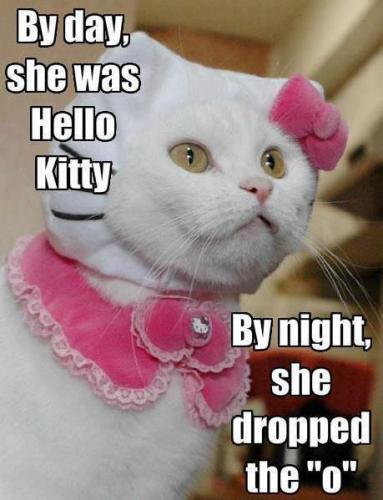
Oh yes, we also have multiple personalities
3. I should write but I can’t
The stories are mapped out, the research is done, the deadline looms. And still I can’t write. Imagine I forced you to stand on the crumbling edge of the Grand Canyon. You’d feel what a writer feels when faced with a blank screen. It’s not laziness stopping us from writing. Mostly it’s fear. Of the words not measuring up to those in our minds. Of disappointing readers. Of disappointing us.
4. We exist in our own timeline
We’re not in jammies at 4pm because we’re slobs, although we may be. We’re gestating a story, poem or book. We may have been awake till 2am making notes. Society and our families would rather we were 9-5 people, but the words have their own agenda and they come when they’re ready.
5. We move the world
We record the tiny details of a sunset, a cat’s fur, a child’s laugh, a moment of such agony that we make you cry along with us. We make you love people who never lived, and hate us when we kill them off. We make our pretend worlds so real that you want to live there, and talk about them with your friends on and offline. Sometimes you live in them with us through fan fiction, costume play and conventions. All of that is OK and a great compliment.
Taking you into our worlds is what we live for. We are writers, we’re different and it’s OK.
Valerie

on Twitter @ValerieParv and Facebook
Read some reviews of Birthright at http://www.valerieparv.com/birthright.html


January 6, 2013
First Monday mentoring for 2013 – focus your writing life
Happy New Year.
Is this the year you finish your manuscript, self-publish new work, try a new genre? Whatever your hopes and dreams, this is a great time to bring them into focus.
First Monday Mentoring is our water cooler. Join me here on the first Monday of each month to talk about your plans, ideas and aspirations. Some talented writers and teachers visit this blog. Whatever your question about craft, writing life or getting published, you can ask it here.
To get us off and running, here are some ways to bring your plans into focus and reach your goals.
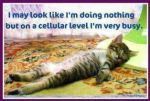
Set goals for yourself, never mind what others think
1. Know what you want to achieve.
Before setting off on a trip it helps to have at least some idea of where you want to end up. Depending on where you are in your writing journey, your “destination” may be to enter a contest and get feedback from the judges, or have a set amount of work written for a critique group or online support group every time you meet. If you’re more experienced, your goal may be to find an agent. Researching which agents work in the areas where you want to be published is a good start. Next would be writing or emailing them, or arranging to pitch an idea to them at a conference. Some writers may want to check out epublishing your own book or backlist. Again, what time frame would get you there?
2. Set definite steps to reach your goal
If you want to finish a novel or novella this year, how many words do you need to write? Breaking the total up into a weekly or daily word target will help you stay focussed and reach your goal in your preferred time frame. Remember to build in some time for family emergencies, illness and life getting in the way. If you want to meet a certain agent, you’ll need to plan ahead, find out any conferences where they may take pitches, and sign up. Or send out a certain number of emails each week until you get a positive response. Submitting work to publishers or teaching yourself epublishing can be handled in the same way.
3. Celebrate your milestones
When you get a positive response, even if it’s a “no” for now, celebrate. You kept your deal with yourself, sent out the emails, wrote the daily or weekly word count. Break out the champagne, chocolate or celebration of choice, see a movie, meet friends and share the joy. In the writing game, progress can be dauntingly slow. Don’t wait till the book is in the ereader or on the shelf to celebrate your achievements. By then, readers will be looking for your next work. Take time now to enjoy the journey.
Can you think of any other steps to get you closer to your goals this year? Do you have questions you’d like answered? This is the place. I’ll be over by the water cooler ready and willing to help.
If you’re not sure what you’d like to achieve this year, why not read in your choice of genre and learn as you go, studying how the books are written, who is publishing them, and how you can make yours special within the demands of that genre.
Hint: if romantic suspense with a hint of science fiction appeals, you can read my latest book, Birthright (Corvallis Press) on Amazon for Kindle and Barnes & Noble for Nook. Post a review anywhere on line before the end of January and share the link here, to be in the running for a $50 Amazon gift voucher judged by my agent, Linda Tate. The winning review will be reposted here.
Let’s make 2013 a year to remember.
Valerie

on Twitter @ValerieParv and Facebook
Read some reviews already up at http://www.valerieparv.com/birthright.html


December 19, 2012
Tips for writing a good book review, and a contest
For something new, I’m chatting with my lovely agent, Linda Tate (pictured below), about my near-future romantic suspense novel, Birthright, which has already received some great reviews. To celebrate, I’m off on a blog tour starting January 8. I’ll tweet and Facebook the stops. Feel free to visit and comment to win a download of the book and a personal authorgraph.
LINDA: to help things along I’m launching a contest for the best review of Birthright posted anywhere online during January.
VALERIE: a contest means prizes, right? I’m thinking a date with Hugh Jackman.
LINDA: Me too, but being practical, I’m thinking $50 Amazon gift card from your publisher, Corvallis Press, and posting the winning review here for all to enjoy.
VALERIE: No Hugh, sigh. But this is a challenge. What do you think makes a good book review?
LINDA: I like to see the book details and cover photo up front, giving the reader a feel for the book without having to hunt for the information.
VALERIE: then show us what the book is about, without retelling the story or giving too much away. A review isn’t a plot summary.
LINDA: yes, for example I like the way fantasy author, Erica Hayes, calls Birthright a “romance with aliens and evil astronauts”, covering the key elements in a clever way. To grab me, a reviewer also needs to write about what they liked and didn’t like about the book, and why.
VALERIE: the blurb gives an overview of the story, but avoid spoilers. Using brief quotes is one way to give readers a taste of the author’s style.
LINDA: I like reviewers who write in their own style, as if talking to a friend. The reviewer’s excitement, or otherwise, should come through, a bit like when I read a new manuscript.
VALERIE: I like to know how well the reviewer thinks the author built the book’s world/setting. And did they relate to the characters enough to care about them.
LINDA: when I first read Birthright, I felt you brought characters such as Adam to life. He’s gorgeous and brilliant, but a Neanderthal around women. Having strengths and weaknesses makes him very real.
VALERIE: he’s one of my favourites, but then all the characters are. I like reviews that comment on the theme, what the book is really about, and whether it kept you reading to the end.
LINDA: and it helps to give the book a rating, whether as a ‘keeper’, with stars, coffee cups or whatever the site awards.
VALERIE: not every review has to cover every point, as long as they have the general idea.
LINDA: so reviewers, here’s your challenge – review Birthright and post the link (not the whole review) on Valerie’s timeline on http://www.facebook.com/valerieparv to win the $50 Amazon Gift Card. Good luck.
VALERIE: See you on the blog tour. Happy holidays and happy reading!
on Twitter @ValerieParv and Facebook
Read some reviews already up at http://www.valerieparv.com/birthright.html


Valerie Parv's Blog
- Valerie Parv's profile
- 30 followers


